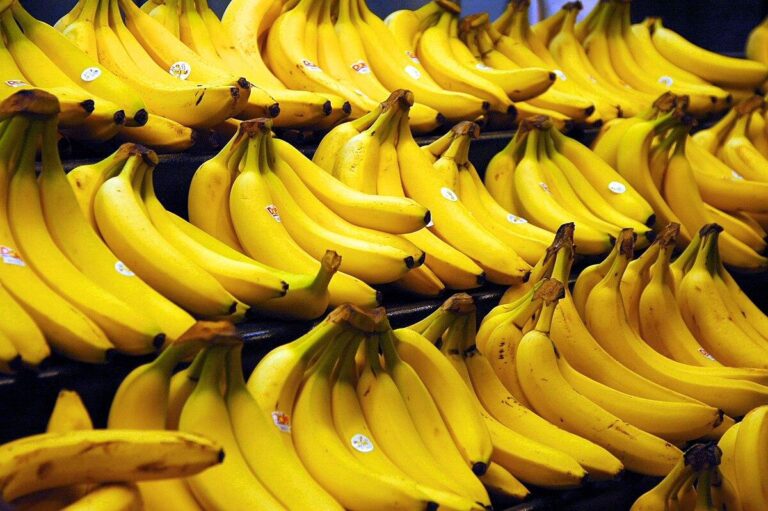Brazil has taken a significant step in combating the devastating impact of fusarium wilt tropical race 4 (R4T) on banana crops by initiating tests on new resistant banana varieties. This disease, known for its destructive effect on plantations worldwide, poses a severe threat to one of Brazil’s key agricultural exports. The fresh trials mark a critical move in safeguarding the banana industry and ensuring long-term sustainability for growers across the country.
Brazil Advances Testing of Bananas Resistant to Fusarium Wilt R4T
Brazilian agricultural researchers have made significant progress in evaluating new varieties of bananas designed to withstand the devastating Fusarium Wilt Tropical Race 4 (R4T) pathogen. This soil-borne fungus has caused widespread damage to banana plantations worldwide, threatening one of the country’s key fruit exports. Field trials are currently being conducted across multiple regions to assess the performance of these resistant cultivars under real farming conditions. Early results show promising resilience, suggesting a potential breakthrough for producers facing heavy losses due to the disease.
Key features of the ongoing research include:
- Multi-regional testing to ensure adaptability to diverse climates in Brazil.
- Collaboration with local farmers and biotechnology firms to accelerate implementation.
- Focus on yield and fruit quality alongside disease resistance to meet market standards.
The table below illustrates preliminary comparisons between traditional banana varieties and the new resistant lines under trial conditions:
| Variety | Disease Incidence (%) | Average Yield (tons/ha) | Fruit Quality Score (1-10) |
|---|---|---|---|
| Traditional Cavendish | 65 | 20 | 8 |
| Resistant Line A | 10 | 18 | 7 |
| Resistant Line B | 12 | 19 | 8 |
Scientific Insights into the Development of Fusarium Wilt Resistant Banana Varieties
Recent advances in agricultural biotechnology have been pivotal in Brazil’s efforts to combat Fusarium wilt Tropical Race 4 (TR4), which poses a significant threat to global banana production. Researchers have utilized a combination of traditional breeding techniques and molecular marker-assisted selection to identify banana genotypes exhibiting enhanced resistance. These scientific interventions focus on increasing the durability and stability of resistance by targeting specific gene loci associated with immune responses against Fusarium oxysporum f. sp. cubense. Field trials conducted across multiple Brazilian states have demonstrated promising results in resistant banana varieties, showing reduced disease incidence and improved plant vigor under natural infection conditions.
In addition to genetic improvements, scientists are integrating physiological and agronomic data to optimize cultivar performance. Key traits under evaluation include:
- Root system robustness to limit pathogen colonization
- Stress tolerance under variable climatic conditions
- Yield stability despite Fusarium wilt pressure
These efforts are supported by comprehensive multi-location trials to ensure adaptability and sustainability. The table below summarizes comparative data from recent trial phases, highlighting the differences between resistant lines and susceptible controls under Fusarium TR4 exposure.
| Variety | Disease Incidence (%) | Yield (tons/ha) | Root Health Score (1-5) |
|---|---|---|---|
| BR-Resist-1 | 12 | 30 | 4.5 |
| BR-Resist-2 | 15 | 28 | 4.3 |
| Control (Susceptible) | 68 | 18 | 2.1 |
Recommendations for Brazilian Farmers to Combat Fusarium Wilt R4T Outbreaks
To effectively mitigate the impact of Fusarium wilt R4T, Brazilian farmers are urged to implement integrated management strategies that prioritize biosecurity and sustainable practices. Regular monitoring and early detection are essential, enabling immediate isolation of infected plants to prevent pathogen spread. Utilizing certified disease-free planting material alongside resistant cultivars can significantly reduce vulnerability. Farmers should also enhance soil health through organic amendments and crop rotation with non-host species, which help suppress pathogen persistence in the soil.
In addition to on-farm practices, collaboration with research institutions is crucial for staying updated on resistant banana varieties and innovative control measures. The following guidelines offer a focused approach:
- Sanitize tools and machinery before and after fieldwork to minimize cross-contamination.
- Restrict movement in and out of infected fields to reduce pathogen dispersal.
- Use resistant banana genotypes that show promising tolerance in recent trials.
- Implement proper drainage systems to avoid waterlogging, which exacerbates disease losses.
| Practice | Benefit |
|---|---|
| Use of resistant varieties | Reduces infection rates by over 50% |
| Sanitization protocols | Limits pathogen spread between fields |
| Soil health management | Enhances plant resilience and suppresses pathogens |
| Restricting access | Minimizes contamination risk |
Insights and Conclusions
As Brazil advances its efforts to combat the devastating impact of fusarium wilt Tropical Race 4, the successful testing of resistant banana cultivars marks a significant milestone in safeguarding the nation’s banana industry. While challenges remain, these developments offer renewed hope for growers and exporters alike, underscoring the importance of continued research and innovation in the fight against this persistent threat. Stakeholders will be watching closely as further trials progress, seeking sustainable solutions to protect both livelihoods and Brazil’s position in the global banana market.




